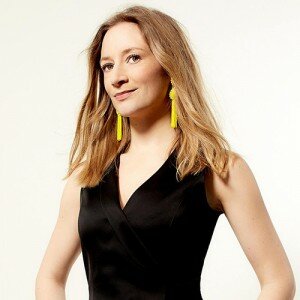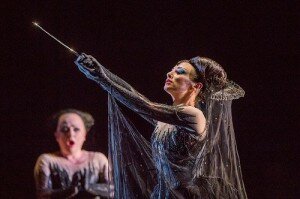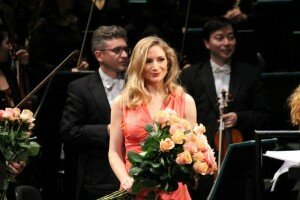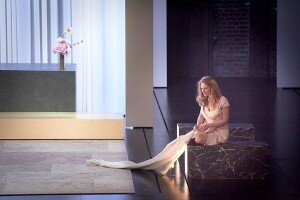‘Humanity in Every Note’
I catch up with French coloratura soprano Sabine Devieilhe in London, in between her performances of Donizetti’s La Fille du Régiment at Covent Garden’s Royal Opera House.

© scontent.fhkg3-1.fna.fbcdn.net
After winning a unanimous First Prize at the Paris Conservatoire National Supérieur de Musique et de Danse in 2011, her career took off. Sabine was awarded Opera Singer Discovery of the Year at the French Victoires de la Musique in 2013, and now performs leading roles all over Europe. I talk to her just after a rest day in between shows (having a day off between each performance is essential for opera singers).
Is there anything specific you do to rest between performances?
I’m a mum, so I have a little one – two and a half years old. I’m just enjoying the last season with him with no school – in France children begin school from three years old. I’m discovering London with him. It’s a nice city to stay with a child, and a very child-friendly occupation! I just have a bit of fresh air and enjoy the time off with my family that is coming to visit me.
What are the specific challenges that you face with coloratura soprano roles that other singers might not face?

© scontent.fhkg3-1.fna.fbcdn.net
The tessitura of a coloratura soprano is very specific because of the way it has to seem easy for the singer – the lightness of the voice is very important. The voice always has to sound very fresh and healthy, this is the key thing for me, and the audience expects me to sound agile and light.
With this in mind you face the specific problems of each score. For example, Olympia from The Tales of Hoffman has to sound mechanical, with perfect pitch, very light and funny, but it’s very difficult to sing and takes a lot of work to get into this ‘easiness’ that the audience hears.
The same is in the Queen of the Night. I have to sound very dramatic and angry and full of power, but my voice has to be very light and have no tension at all to be able to go right up to the top notes, so it’s all about a good balance between technique and theatre. We have to treat it like drama, to be sure not to sound like an instrument – we have to add a special humanity into every note.
Did you find when you were studying that the technique or the drama came easier to you?

© scontent.fhkg3-1.fna.fbcdn.net
I think it’s a general process. As a light soprano, I didn’t have to work on getting more high notes because I’m a high soprano anyway! I just had to give my body the opportunity to make them be heard by a big hall, and to give the power of the theatre in every note – this was a lot of work. I think this was also a matter of balance, and a nice way to discover my instrument and to work on it as an artist would work on a piece of art: in a lot of detail day-to-day.
You studied the cello before becoming a singer. Did you find that influenced you when you decided to become a singer?

© scontent.fhkg3-1.fna.fbcdn.net
Definitely. I feel it’s so important for an artist to not just be involved with their instrument, but also the historical context with their work, the story of the interpretations… it’s an overall work we have to do now, and I really enjoy it a lot. The cello really gave me the way to listen for low harmonics, which is helpful for going back to the fundamental of a chord. It also gave me a way to practise and to be regular, and work every day. Some singers don’t remember it’s a muscle and we have to work on it every day. And it’s not only singing; it’s being healthy, doing some sports – it’s not a lifestyle necessarily, but it’s an overall thing.
And what is this ‘overall’ work for you on a daily basis?
It’s more about being sure that the moment I go on stage I am fully prepared, that my body is 100% into singing. Also my concentration – this begins quite early in the morning with some stretching, some pilates, and with food, to make sure I can go right to the last moment.





We have just discovered the superb voice of Sabine Devieilhe singing an aria from Guilio Cesare…so expect she will follow Natalie Dessay as a coloratura star. Looking forward to hearing her in Les Dialogues des Carmelites at the Met NYC in two weeks. Now in Florida but I am usually residing in Stresa, Italy. We appreciated your article giving us more information about her.
Best regards,
Jane Calahan